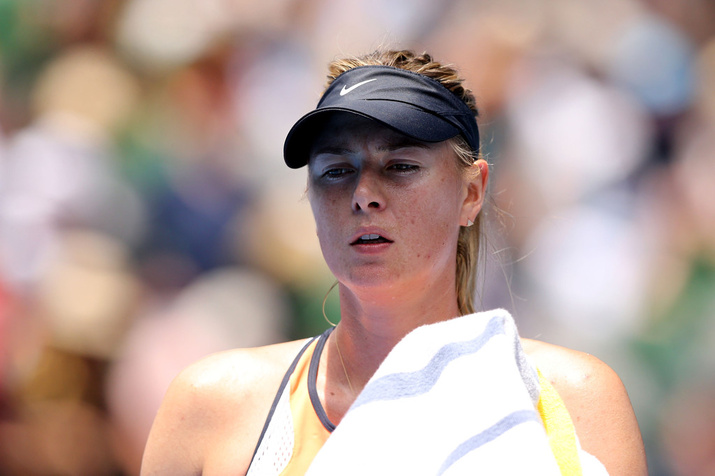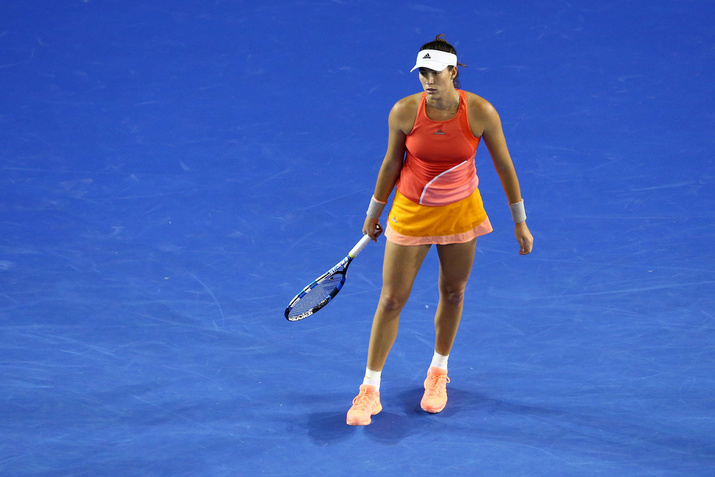Don't miss any stories → Follow Tennis View
FollowDubai, Doha Highlight Chaos in WTA
They say that there is no such thing as bad publicity. Those associated with the WTA may beg to differ. It has been a rough couple of months for the governing body of women's tennis, with a number of players – including many top stars – making headlines for all of the wrong reasons. It has developed into a worrying trend and one that could have consequences down the road if it is not reversed soon.

Ominous would be a great way to describe the start of the 2016 WTA season. Marquee competitors Serena Williams, Maria Sharapova, and Simona Halep were just a few of the players who, due to injury, were forced to pull out of tune-up events for the Australian Open. Then there was the fiasco in Melbourne, where being a seed meant little to nothing as a record number of them were ousted in the early rounds. Sadly, things have not improved since then, and if anything have gotten worse. Last week in Dubai, all eight of the seeds lost their opening matches, and it has been virtually more of the same this week in Doha.
To this juncture in time, the chaos that has plagued the WTA has primarily been an interesting talking point, but if it continues much longer, it could conceivably begin to affect the WTA's bottom line. One of the major factors in driving television audiences and ticket sales is the expectation that not only will star competitors be present, but that the vast majority of them can be counted upon to reach the business end of the event. After all, fans may appreciate a Cinderella story, but that plot line loses its luster when there are too many Cinderellas and not enough of the elite vying for the title. Additionally, the top players are generally more recognizable and thus are typically the ones in whom fans are more emotionally invested. Love them or hate them, people will tune in to see how these players perform, since they simply care more about the outcome, especially if that player is competing against an established rival. Unfortunately, the current atmosphere of the WTA does not lend itself to these scenarios.
The current atmosphere of the WTA could arguably potentially lead to the women losing ground in the equal pay battle as well. That consequence is a long way down the road and may never even come to fruition, but it has to be considered. A few years ago when Gilles Simon was pressed to defend his argument that women did not deserve equal prize money at all events, he suggested that it was the men who were responsible for pulling more ticket sales. Although that argument was debatable at the time (and certainly dependent on the individual players in question, as Sharapova pointed out), the Frenchman's argument is steadily becoming more valid. The WTA is currently not offering nearly the same product as the ATP World Tour. The men produce their share of upsets, but more often than not, the top dogs are advancing to the latter rounds. Equally important, the stars of the ATP are frequently more fit to regularly compete. The WTA needs to move closer to being able to provide what the ATP presently does, or organizers might start taking a hard look at the financial side of things.

A dip in prize money is hardly on the horizon, but the WTA does have problems that it needs to fix. How to fix them is anyone's guess. Injuries may possibly be diminished through a further shortening of the season, but that is no guarantee. Perhaps allowing coaching at the Grand Slams or eliminating it altogether instead of the current mixed model would help alleviate the rash of upsets at the majors. But ultimately, the WTA needs its players to rise to the challenge. They do not need to be as dominant as Williams, but the tour needs a few more like Sharapova and Azarenka. Right now, there are seemingly more pretenders than contenders, and without the reversal of that trend, the present upheaval on tour will do something worse for the WTA than making it a worrying headliner. It will become a punchline.










